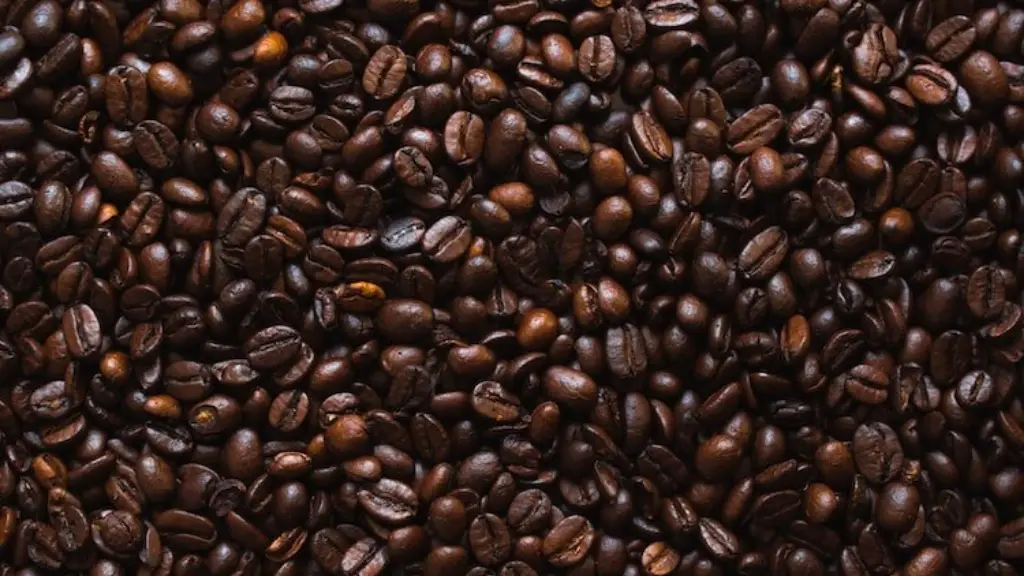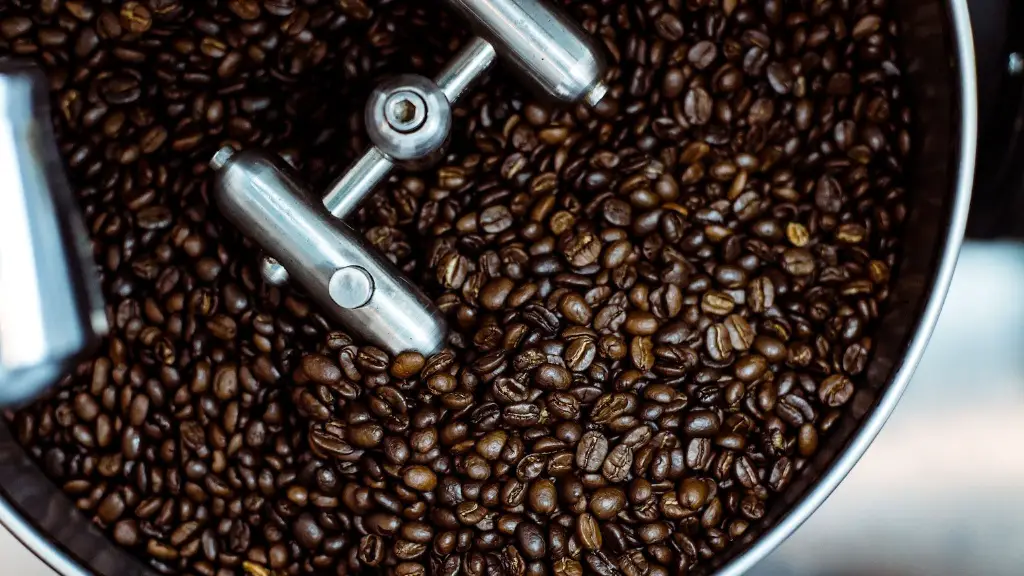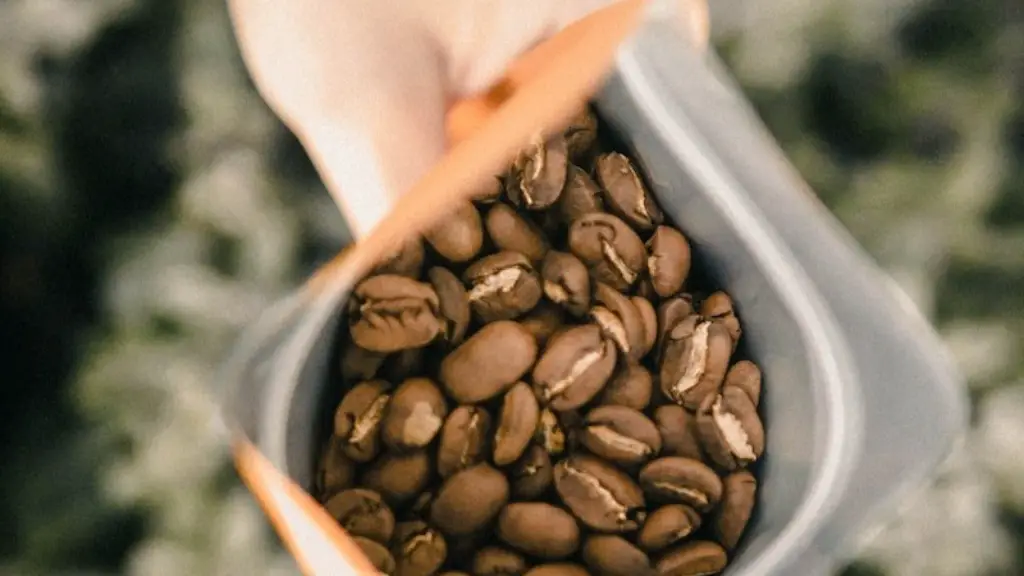Breastfeeding is a natural way to provide your baby with the nutrients they need to grow and develop. However, many new mothers are concerned about how much caffeine they can have while breastfeeding.
Caffeine is a stimulant drug that can be found in coffee, tea, energy drinks and other beverages. While moderate amounts of caffeine may not affect your baby, too much can be harmful.
The amount of caffeine you should consume while breastfeeding will depend on your individual health and lifestyle factors. It is important to talk to your doctor or midwife about what is safe for you and your baby. You should also take into consideration how much caffeine you had during pregnancy.
In general, it is recommended that breastfeeding mothers limit their daily intake of caffeine to no more than 300 milligrams per day. This equates to about two 8-ounce cups of coffee per day. However, it is best to consult with a medical professional before increasing your caffeine intake while breastfeeding.
Caffeine and Breastfeeding
Caffeine can pass through breastmilk to the baby and can cause the baby to be irritable or have trouble sleeping. It is recommended that breastfeeding mothers limit caffeine intake to no more than 300 milligrams a day, or the equivalent of two 8-ounce cups of coffee. Some mothers choose to completely abstain from caffeine while breastfeeding. Mothers should also be aware that caffeine can be found in other sources, such as energy drinks, tea, chocolate, and some medications. Therefore, it is important for breastfeeding mothers to read labels carefully and monitor their total caffeine intake.
It is important for breastfeeding mothers to remember that what they eat and drink affects their breastmilk and their baby’s health. Therefore, it is important for them to pay attention to their diet in order to ensure that their baby receives all the nutrition they need.
Is Decaffeinated Coffee Safe for Nursing Mothers?
Decaffeinated coffee is generally considered safe to drink while breastfeeding. However, it is important to note that some of the caffeine may still remain in decaffeinated coffee. Therefore, it is best for nursing mothers to consume no more than 1-2 cups of decaffeinated coffee per day. It is also important to remember that caffeine can pass through breast milk and may affect your baby. Therefore, it is recommended to limit or avoid other sources of caffeine such as tea and chocolate while breastfeeding. Additionally, if you feel that your baby is not tolerating the caffeine in your breast milk, you should speak to your doctor or health care provider.
Overall, decaffeinated coffee can be consumed in moderation while breastfeeding. However, it is important to remember that too much caffeine can have potential effects on both you and your baby’s health. Therefore, if you are consuming other sources of caffeine or are concerned about the effects of caffeine on your baby’s health, it is best to speak to a healthcare professional for further advice.
Side Effects of Drinking Too Much Coffee While Breastfeeding
It is important to consider the side effects of drinking too much coffee while breastfeeding. Caffeine can pass through breastmilk and could potentially have an effect on your baby’s sleep patterns, irritability, and feeding habits. High consumption of caffeine may also cause a decrease in milk production.
It is generally recommended that nursing mothers limit their caffeine intake to no more than 300 milligrams per day, which equates to about two to three 8-ounce cups of coffee. It is also important to note that other forms of caffeine like energy drinks and soda should be avoided or limited as much as possible while breastfeeding.
It is best to speak with your doctor before consuming any caffeinated beverages while breastfeeding as it can affect both you and your baby’s health. If you feel that your caffeine consumption has become excessive, it is important to speak with your doctor.
How Long Does Caffeine Stay in Breastmilk?
Caffeine is a naturally occurring stimulant found in coffee and other beverages. It is also found in certain medications and foods. When breastfeeding, the amount of caffeine that passes through the breastmilk to the infant will depend on several factors, including how much caffeine was consumed by the mother and how quickly her body breaks it down. Generally speaking, it takes between two and five hours for the body to clear half of the caffeine from breastmilk. This means that it can take up to 10 hours for all of the caffeine to be eliminated from breastmilk.
When deciding how much coffee or other caffeinated beverages can be consumed while breastfeeding, there are several things to consider. The American Academy of Pediatrics (AAP) recommends avoiding or limiting caffeine intake while breastfeeding, particularly if your baby is younger than three months old. For older babies, the AAP suggests limiting caffeine intake to no more than 300 milligrams per day (about two 8-ounce cups of coffee). It is important to remember that foods and drinks with added sugar or artificial sweeteners should also be limited when breastfeeding.
It is also important to note that excessive amounts of caffeine can lead to jitteriness, irritability, difficulty sleeping, increased heart rate, and other symptoms in babies. If you experience any of these symptoms after consuming caffeinated beverages while breastfeeding, it may be a sign that your baby needs a break from caffeine or that you need to reduce your intake further.
Overall, moderate amounts of caffeine can be consumed safely while breastfeeding as long as it is done in moderation and any signs of discomfort in your baby are monitored closely.
Foods and Drinks Containing Caffeine
Caffeine is a stimulant found in many foods and drinks. Common sources of caffeine include coffee, tea, energy drinks, chocolate, and some soft drinks. While coffee is the most widely consumed source of caffeine, it is not the only one. Tea, especially green tea and black tea, also contains caffeine. Energy drinks usually contain high amounts of caffeine, as do some soft drinks. Chocolate also contains small amounts of caffeine. These foods and beverages can be enjoyed in moderation while breastfeeding.
When it comes to coffee specifically, the amount that can be consumed while breastfeeding varies from person to person. The American Academy of Pediatrics states that moderate consumption (about 300-500 mg per day) of caffeine during pregnancy or lactation does not appear to be a problem for most infants. However, large amounts (more than 500 mg per day) can lead to irritability or poor sleeping patterns in some babies.
It is important for mothers who are breastfeeding to monitor their own intake of caffeine-containing foods and beverages and make sure that the baby does not have any adverse reactions.
Alternatives to Drinking Caffeinated Beverages While Breastfeeding
Breastfeeding mothers often worry about how much caffeine they can consume without affecting the health of their baby. While the exact amount of caffeine that is safe for breastfeeding mothers is unclear, it is generally agreed that limiting caffeine intake to no more than 300 mg per day is a safe threshold. It is also important to spread out the intake of caffeine throughout the day, as opposed to consuming all at once. There are many alternatives to drinking caffeinated beverages while breastfeeding. These alternatives include herbal teas such as chamomile, fennel, and red raspberry leaf, as well as decaffeinated coffee and tea. Other options are water-based drinks such as sparkling water or flavored water with natural fruit juices. Additionally, some lactation teas are designed specifically for breastfeeding mothers and provide essential vitamins and minerals that can help with milk supply and overall health.
It is important for breastfeeding mothers to stay hydrated by drinking plenty of fluids throughout the day. In addition to the alternatives mentioned above, smoothies made with fruits and vegetables can be a great way to get extra nutrition while keeping your body hydrated. Ultimately, when it comes to choosing drinks while breastfeeding, it’s important to make sure you’re getting enough fluids from sources that are healthy and beneficial for both mom and baby.
To Sum it All Up
While breastfeeding, it is generally safe to consume moderate amounts of caffeine. There are no exact guidelines on how much coffee you can drink, as everyone’s bodies are different and may respond to caffeine differently. However, 200 mg or less of caffeine per day is generally considered safe for both mother and baby. It is important to keep in mind that caffeine can pass through breast milk and can affect your baby’s sleep patterns, so try to limit your intake and avoid drinking coffee late in the day.





